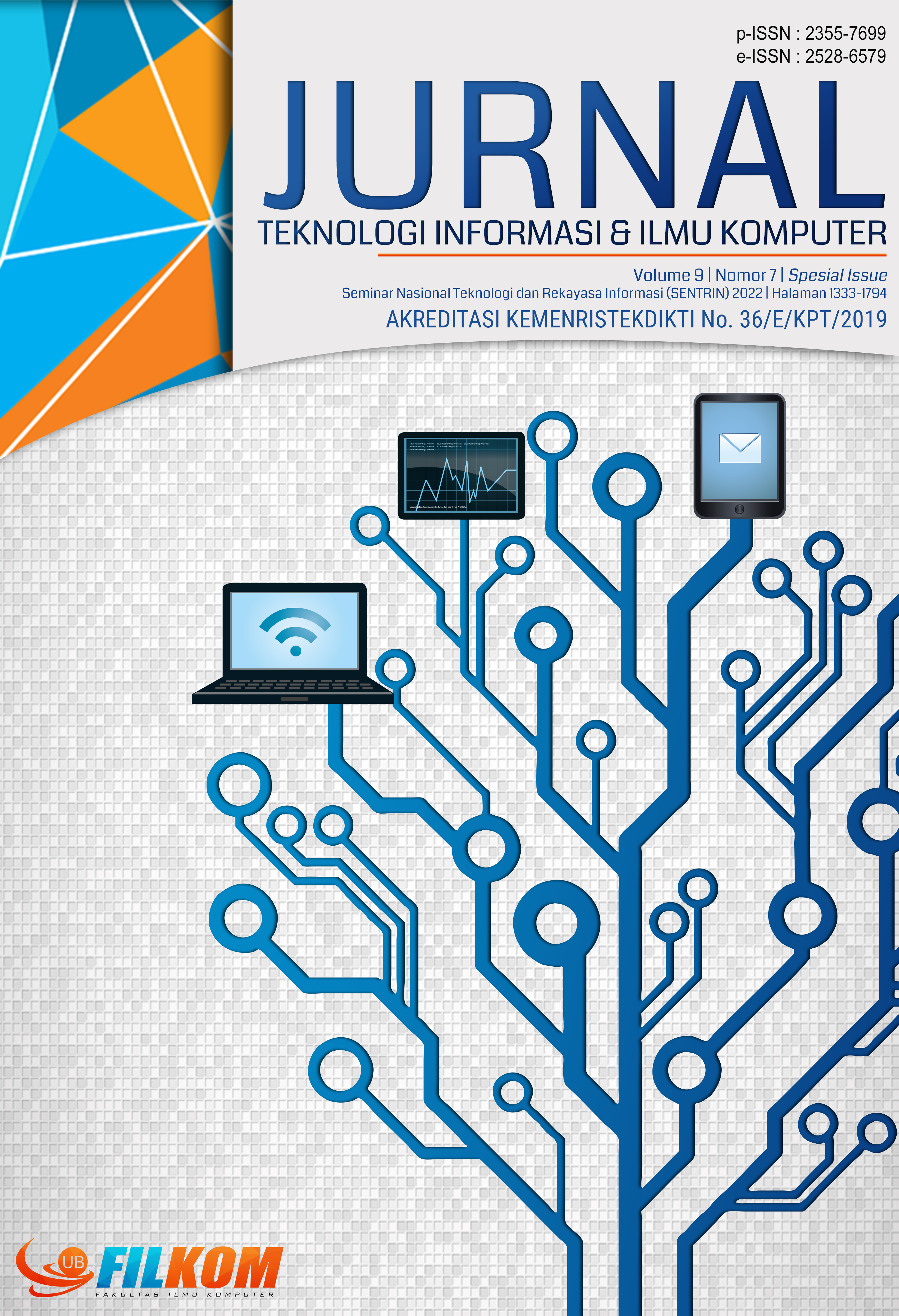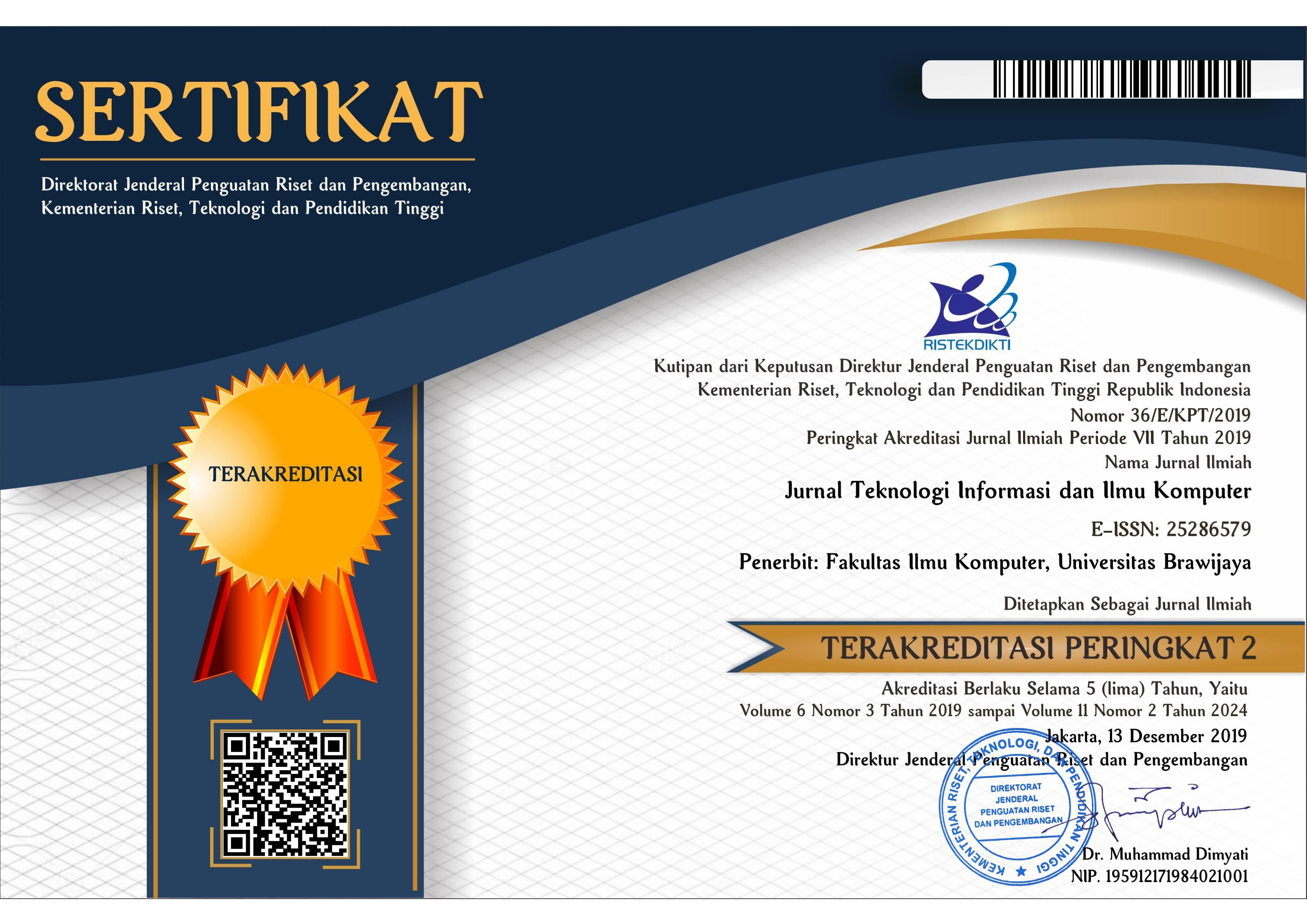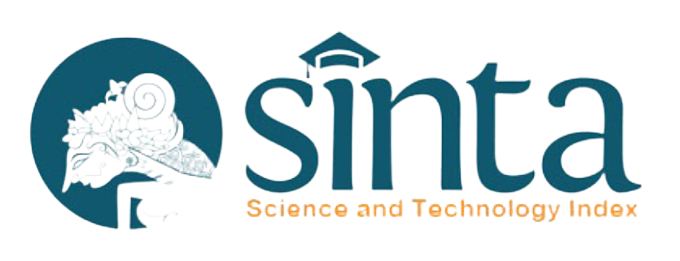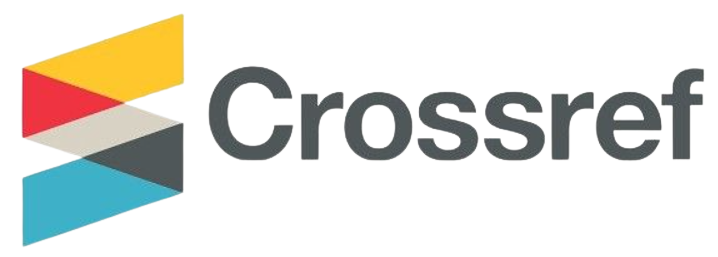Model Formal Negosiasi dalam Sistem Penjadwalan Rapat Berbasis Agen
DOI:
https://doi.org/10.25126/jtiik.2022976762Abstrak
Sistem penjadwalan rapat menggunakan pendekatan berbasis agen bekerja dengan cara melakukan pencarian secara terdistribusi dalam rangka menemukan waktu pelaksanaan rapat yang dapat diterima oleh para peserta rapat. Dalam proses pencarian tersebut, agen-agen bernegosiasi untuk menyeimbangkan preferensi rapat dan preferensi para peserta rapat. Selama proses tersebut, konflik dapat terjadi dan mengakibatkan negosiasi perlu dilakukan dalam beberapa putaran dimana semakin banyak putaran akan mengurangi efisiensi pencarian. Untuk meningkatkan efisiensi, negosiasi perlu dijaga agar berlangsung secara konvergen. Artikel ini membahas model formal dari negosiasi sistem penjadwalan rapat berbasis agen untuk menjelaskan secara presisi beberapa konsep penting dalam negosiasi penjadwalan rapat berbasis agen sehingga bisa digunakan sebagai acuan dalam pengembangan sistem pada tahap selanjutnya. Konvergensi dalam negosiasi diwujudkan dengan membangun dua fase negosiasi. Pada fase pertama, proposal berisi sejumlah cluster solution, sedangkan proposal pada fase kedua berbentuk specific solution yang dibangkitkan berdasarkan cluster solution yang banyak dipilih peserta rapat. Dalam negosiasi ini, resolusi konflik juga disiapkan untuk mengatasi konflik yang tidak dapat dihindari dengan menerapkan relaxing constraint. Konsep negosiasi ini bisa diimplementasikan sebagai protokol negosiasi dalam sistem penjadwalan rapat berbasis agen.
Abstract
An agent-based meeting scheduling system performs a distributed search to find an acceptable meeting time for the participants. In the search process, agents negotiate to balance meeting preferences and those of the participants. Conflicts may occur during the search, resulting in the negotiation in many rounds. In fact, more rounds will reduce search efficiency. Negotiation needs to be kept convergent for their efficiency. This article discusses a formal model of negotiating an agent-based meeting scheduling system to avoid ambiguity when it is developed. Convergence in negotiations is realized by establishing two negotiation phases. In the first phase, the proposal contains several cluster solutions, while the proposal in the second phase is in the form of a specific solution that is generated based on the cluster solution chosen by many meeting participants. Conflict resolution is prepared to overcome unavoidable conflicts by applying relaxing constraints in this negotiation. This concept is ready to be implemented as a negotiation protocol for an agent-based meeting scheduling system.
Downloads
Referensi
ANON. 2016. Hasil Pencarian - KBBI Daring. [online] Badan Pengembangan dan Pembinaan Bahasa, Kementerian Pendidikan dan Kebudayaan Republik Indonesia. Available at: <https://kbbi.kemdikbud.go.id/entri/negosiasi> [Accessed 24 November 2017].
CARDOSO, R.C. and FERRANDO, A., 2021. A review of agent-based programming for multi-agent systems. Computers, 10(2), pp.1–15. https://doi.org/10.3390/computers10020016.
EPHRATI, E., ZLOTKIN, G. and ROSENSCHEIN, J.S., 1994. Meet your destiny: A non-manipulable meeting scheduler. Proceedings of the 1994 ACM Conference on Computer Supported Cooperative Work, CSCW 1994, pp.359–371. https://doi.org/10.1145/192844.193049.
GARRIDO-LUNA, L. and SYCARA, K., 1996. Towards a totally distributed meeting scheduling system. Lecture Notes in Computer Science (including subseries Lecture Notes in Artificial Intelligence and Lecture Notes in Bioinformatics), 1137, pp.85–97. https://doi.org/10.1007/3-540-61708-6_50.
HERRERA, M., PÉREZ-HERNÁNDEZ, M., PARLIKAD, A.K. and IZQUIERDO, J., 2020. Multi-agent systems and complex networks: Review and applications in systems engineering. Processes, 8(3), pp.1–29. https://doi.org/10.3390/pr8030312.
JENNINGS, N.R., FARATIN, P., LOMUSCIO, A.R., PARSONS, S., WOOLDRIDGE, M. and SIERRA, C., 2001. Automated Negotiation: Prospects, Methods and Challenges. Group Decision and Negotiation, 10(2), pp.199–215. https://doi.org/10.1023/A:1008746126376.
KELLEY, J.F. and CHAPANIS, A., 1982. How professional persons keep their calendars: Implications for computerization. Journal of Occupational Psychology, 55(4), pp.241–256. https://doi.org/10.1111/j.2044-8325.1982.tb00098.x.
KINCAID, C.M., DUPONT, P.B. and KAYE, A.R., 1985. Electronic Calendars in the Office : An Assessment of User Needs and Current Technology. ACM Transactions on Information Systems, [online] 3(1), pp.89–102. https://doi.org/10.1145/3864.3868.
LAASRI, B., LAASRI, H., LANDER, S. and LESSER, V., 1992. a Generic Model for Intelligent Negotiating Agents. International Journal of Cooperative Information Systems, 01(02), pp.291–317. https://doi.org/10.1142/s0218215792000210.
LEYTON-BROWN, Y.S. and K., SHOHAM, Y. and LEYTON-BROWN, K., 2008. Multiagent Systems: Algorithmic, Game-Theoretic, and Logical Foundations. [online] Cambridge University Press, https://doi.org/10.1073/pnas.97.18.9840.
MEGASARI, R., HUSNI, E.M., KUSPRIYANTO and WIDYANTORO, D.H., 2016. Negotiation strategies for meeting scheduling conflict management. Proceedings - 2015 International Conference on Science in Information Technology: Big Data Spectrum for Future Information Economy, ICSITech 2015, pp.276–281. https://doi.org/10.1109/ICSITech.2015.7407817.
MELLO, R.R.P. DE, ANGELO GELAIM, T. and AZAMBUJA SILVEIRA, R., 2018. Negotiation strategies in multi-Agent systems for meeting scheduling. Proceedings - 2018 44th Latin American Computing Conference, CLEI 2018, pp.242–250. https://doi.org/10.1109/CLEI.2018.00037.
PALEN, L., 1999. Social, individual & technological issues for groupware calendar systems. Conference on Human Factors in Computing Systems - Proceedings, [online] (May), pp.17–24. https://doi.org/10.1145/302979.302982.
PURBO, T.S. and KURNIAWAN, T.A., 2020. Survey of automated meeting scheduling approaches. In: ACM International Conference Proceeding Series, SIET ’20. [online] New York, NY, USA: Association for Computing Machinery.pp.29–34. https://doi.org/10.1145/3427423.3427461.
RAY, R. and KALADY, S., 2009. Efficient negotiation strategies in multi-agent meeting scheduling. 2009 Second ISECS International Colloquium on Computing, Communication, Control, and Management, CCCM 2009, 1, pp.434–437. https://doi.org/10.1109/CCCM.2009.5268090.
SEN, S. and DURFEE, E.H., 1991. Study of Distributed Meeting Scheduling: Preliminary Results. COCS ’91 Proceedings of the conference on Organizational computing systems, pp.55–68.
SEN, S. and DURFEE, E.H., 1996. A contracting model for flexible distributed scheduling. Annals of Operations Research, [online] 65(1), pp.195–222. https://doi.org/10.1007/BF02187332.
SHAKSHUKI, E.M. and HOSSAIN, S.M.M., 2014. A personal meeting scheduling agent. Personal and Ubiquitous Computing, 18(4), pp.909–922. https://doi.org/10.1007/s00779-013-0695-6.
TEGER, S.L., 1983. Factors Impacting the Evolution of Office Automation. Proceedings of the IEEE, 71(4), pp.503–511. https://doi.org/10.1109/PROC.1983.12621.
WOOLDRIDGE, M., 2002. An Introduction to Multi Agent System. John wiley & Sons, Ltd. https://doi.org/10.1007/978-3-642-14435-6_1.
ZUNINO, A. and CAMPO, M., 2009. Chronos : A multi-agent system for distributed automatic meeting scheduling. Expert Systems With Applications, [online] 36(3), pp.7011–7018. https://doi.org/10.1016/j.eswa.2008.08.024.
Unduhan
Diterbitkan
Terbitan
Bagian
Lisensi

Artikel ini berlisensi Creative Common Attribution-ShareAlike 4.0 International (CC BY-SA 4.0)
Penulis yang menerbitkan di jurnal ini menyetujui ketentuan berikut:
- Penulis menyimpan hak cipta dan memberikan jurnal hak penerbitan pertama naskah secara simultan dengan lisensi di bawah Creative Common Attribution-ShareAlike 4.0 International (CC BY-SA 4.0) yang mengizinkan orang lain untuk berbagi pekerjaan dengan sebuah pernyataan kepenulisan pekerjaan dan penerbitan awal di jurnal ini.
- Penulis bisa memasukkan ke dalam penyusunan kontraktual tambahan terpisah untuk distribusi non ekslusif versi kaya terbitan jurnal (contoh: mempostingnya ke repositori institusional atau menerbitkannya dalam sebuah buku), dengan pengakuan penerbitan awalnya di jurnal ini.
- Penulis diizinkan dan didorong untuk mem-posting karya mereka online (contoh: di repositori institusional atau di website mereka) sebelum dan selama proses penyerahan, karena dapat mengarahkan ke pertukaran produktif, seperti halnya sitiran yang lebih awal dan lebih hebat dari karya yang diterbitkan. (Lihat Efek Akses Terbuka).












